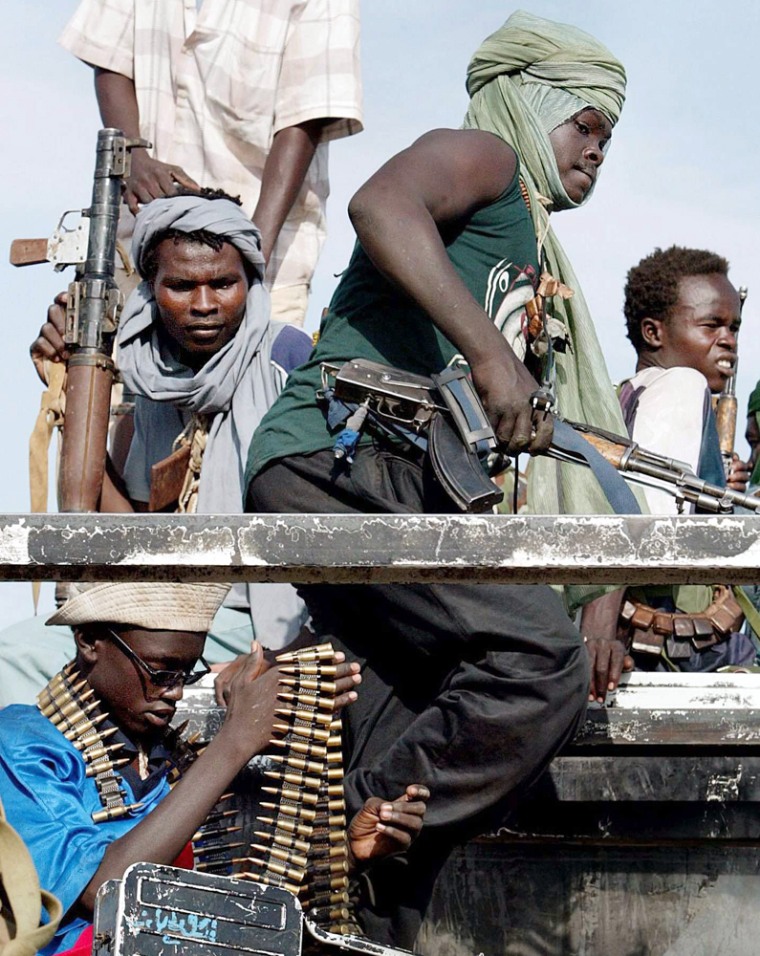Sudan’s government and rebels wrapped up a first day of new peace talks Monday, trying to break a deadlock over security issues keeping aid workers from reaching hundreds of thousands of refugees in Sudan’s western region of Darfur.
The rebels said they were calling for a security agreement before signing a humanitarian accord. That demand led to the failure of talks in Nigeria a month ago, and many are skeptical the new talks will fare any better.
“Although I should have reasons for being optimistic, I am not,” said Abulrahman Zuma, a press adviser to the Sudanese government and a delegate at the African Union-brokered meeting in the capital, Abuja.
One of the two rebel groups, the Justice and Equality Movement, accused the government of recently bombing towns and villages where some of its key bases in eastern Darfur are located.
“As a result of the bombardment, about 7,000 people have been displaced,” said rebel official Ahmed Tugod Lissan. “We believe this is the policy of the government, and they have not decided to solve the matter politically.”
But Sudanese officials said government forces were simply defending their own positions from rebel attack — not targeting civilians or insurgents.
A lack of trust
Monday’s talks ended earlier than expected after rebels objected to an African Union plan calling on them to meet directly with government officials to iron out a specific agenda for talks on security in Darfur.
“There isn’t any trust between us and the government,” said the leader of the rebel Sudan Liberation Army, Abdelwahid Muhamed El Nur.
Talks are to continue Tuesday with the focus shifting to political issues, delegates said.
The crisis in Sudan’s western region began in February 2003 when African rebels rose up against the Arab-dominated government, claiming discrimination in the distribution of scarce resources in the large, arid region. Major bloodshed followed when pro-government militias called Janjaweed reacted by unleashing attacks on Darfur villages.
The United Nations has called Darfur the world’s worst humanitarian crisis and said the violence has claimed 70,000 lives since March, while 1.5 million have fled their homes since February 2003.
A key sticking point in reaching a deal on security is a government demand the insurgents disarm.
The Sudan Liberation Army and the smaller Justice and Equality Movement insist the Janjaweed must first be reined in and disarmed.
Government pledges
The Sudanese government has promised to allow humanitarian agencies unfettered access to areas of Darfur under its control, as stated in a draft humanitarian aid accord that guarantees similar access for aid workers in rebel-controlled areas.
The rebels say existing accords already provide for relief efforts and that Janjaweed attacks make it impossible to do more to protect aid workers.
Despite disagreements, El Nur said his group would remain at the talks because they were “here to solve the problem comprehensively.”
But he warned: “My belief is that if the security issue is not solved, then we will not solve” the Darfur crisis, he said.
Zuma, the government official, said: “The problem is the other side — they are not united under responsible leadership.”
